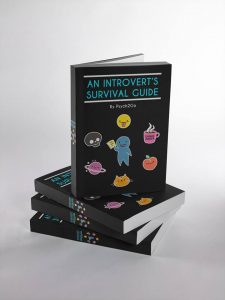5 Ways to Approach Your Toxic Parents

When people recover from trauma, they often separate themselves from the person who caused it. But, what about recovering from being traumatized by your parents, the people you still see? Whether you still live with your toxic parents or visit them during the holidays, we understand that there’s no way to take back the pain, fears, or hellish nightmares you’ve experienced. That’s what makes it so hard, right? That despite everything that happened, somehow you’re still involved. Maybe it’s time to look beyond the fires of destruction for an exit—one you can find together. Psych2Go shares with you 5 ways to approach your toxic parents:

1. Find your calm. Step outside first if you must.
Emotions often distract us from problem-solving. If you’re feeling overwhelmed, anxious, or angry, step outside and breathe in some fresh air. Getting out of the house for a while is healthy. The air inside may not be toxic, but the mood is. It’s impossible to shut down and stop feeling everything altogether. After all, we have emotions in order to detect danger. But rather than staying rooted in them, stepping out to cry it all out or scream on a rooftop before going back inside can give you a clear head.
You’ve been through a lot, and so have your parents. What you’re about to do is brave. Don’t expect yourself to have it all together, but be aware of the way you deliver your actions. It’s easier to do that when you’re not wrapped so tightly in your emotions that can explode at any second. So, go ahead and find your calm first.

2. Don’t point fingers or compare and contrast.
This will only cause the both of you to talk at each other, not with each other. Your parents will feel offended and the first thing they’ll want to do is defend themselves. They won’t hear where you’re coming from because they’ll feel attacked. Rather than saying, “Why can’t you be like so and so’s parents?” or blaming all of your problems on them, tell them that you’ve been badly hurt and negatively affected.
Replace phrases like, “You should know better than to invade my boundaries” or, “You should know better than to lash out on me like that” with, “I want us to get better. But it doesn’t happen from disrespecting boundaries or lashing out on me. I know this is hard for the both of us. Let’s work through it together.” Be the bigger person and express empathy. If your parents were ever highly critical of you, you already understand how scarring the experiences were. Rather than criticizing them back, steer your conversations in a more welcoming direction where the both of you can be more receptive to each other’s needs.

3. Be honest and tell them what you need from them.
Approach them gently and tell them honestly how you feel and what you need from them. It’s going to be uncomfortable when you’re open and vulnerable, but it’s clear at this point that your parents aren’t behaving right towards you. Nor does it put you in a place where you can grow and develop in a healthy fashion. Rather than screaming, approach them calmly about the issues. Tell them that you want things to get better between the two of you, but that you can’t carry the weight for the both of you, nor can you do all the work. Unfortunately, growth can’t be done for another person. They have to want it just as much. You can’t force someone to change, but you can still provide insights and perspectives they can eventually digest and understand one day.
When I first moved out because things became incredibly unstable between my mother and I, weeks passed before we heard from each other. One morning, I woke up to the sound of my phone buzzing. I checked the screen and saw that she was calling me. Half asleep and without much thought, I answered it. There was silent breathing on the other end before I heard her hang up. What did that brief silence mean? The most important things are the hardest to say, but when they’re all you have, somehow you’ll still find a way to say them.

4. Just hold them.
Your parents are flawed just like any of us, and you know it better than anyone else because their actions affect you every day. It’s funny—how layered people can be. There’s a fusion of sadness, longing, and disappointment baked into each of us. Some days, your parents may show their fiery, aggressive, my-way-or-the-highway side. It upsets you when they don’t listen to your input or give you room to explore who you want to be. You become aggravated, scared, and frustrated. But as you step into the kitchen for a glass of water and pass their bedroom on the way, you can hear their muffled crying. How is it that someone can be so angry and violent one minute, but fragile and shaky the next?
Sometimes, we don’t want words, because language can fail us. I am familiar with that failure everyday when language barriers are hard to break between my parents and I. So when it hurts too much to say anything, don’t say anything at all. Reach out and hold their hand. Hug them. Hold them when they’re bending over their bed, sobbing and breaking. This isn’t the end. Break together until there’s nothing left to break anymore, and then let them know that you still want to start over with them. No one said this was going to be easy, but it’s powerful when you step down and humanize your parents.

5. Demonstrate the love and support you’ve always wanted from them.
If they can’t understand how to love you better, then you can show them what you’ve been missing. It sounds a little ridiculous, doesn’t it? A parent learning from their child. But knowledge is power, and sometimes we gain it when we least expect it. Often, children who are raised by toxic parents either repeat the toxic cycle themselves or become the opposite of who they were always afraid to become. For instance, rather than being angry and unyielding, I’ve learned to become flexible and understanding.
Set an example for your parents and show them that it’s possible that they can still be anyone they want to be. You’ll come to find that inside each parent is a scared little kid, especially when they’re afraid of failing you again. Providing encouragement never hurts. But never trying does.
Are you scared to approach your toxic parents? We understand how difficult it can be and want to help. Please share your story with us by leaving a comment down below!
One of our dear readers asked for our help, which is why I took the leap and wrote this. I understand this advice may not be applicable to everyone, because all our experiences are painted differently. Unfortunately, there’s no “right way” to approaching toxic parents when their behaviors aren’t uniform. But, I wrote this from my own personal experiences and it comes straight from the heart—a place of terrible memories that also co-exists with the room I enter for healing. I thank each and every one of you for stepping into that room with me. ♥
Want to say hello or send a personal message? You can reach the author at catherine@psych2go.net. ♥
If you enjoyed this article, then you may also like The 5 Types of Children from Toxic Families or 6 Side Effects of Toxic Parenting.
Looking for more reading supplies? Please check out our new e-book: An Introvert’s Survival Guide! Get your copy today!





I’m sorry but how am i supposed to communicate when i ask her help she tells me to quit crying? Leaves me alone for days while still being in the same room, never hugs me, screams at me saying i’m spoiled and don’t deserve anything. Never looks at me in the face, always looks at her phone, buysa anything and everything she wants while giving me 10 dollars for 2 weeks. Tells me im lazy while never doing anything for her name.
I’m sorry but this post is a lie. This isn’t something that can be fixed with love and fairy dust.
Hi Iris, thank you for reading and sharing your honest thoughts with us. I’m sorry to hear that you’re going through that. And I’m sorry that you think it’s all a lie. Perspective is everything and we’re all allowed to have our own, especially when it’s colored from our own experiences. But, I wrote this because I’m going through some difficult motions of trying to mend ways with my parents, especially my mother. I wrote this coming from my own experiences, from what I’ve seen. So, no. It’s not a lie. Not to me. Not when I’ve lived it, and am still in the process of making things right again. It’s not easy, and it’s painful. Love doesn’t fix everything, but anger and feelings of resentment don’t provide progress either.
You’re hurting, and I’m sorry that your mother’s placed that hurt on you. Perhaps it’s not time to approach her yet. There’s a time in life for everything, including healing. A few months ago, I wasn’t in that time frame. But, now I am. I hope you get there one day, too. When you are, let me know and we can approach this together again.
If you ever need anything, you can reach me at catherine@psych2go.net.
Sometimes things don’t get better. My parents never showed affection or said they loved me. They were always absorbed in their own things. They were highly critical of me and everyone in general. I am 35 now and I’m not that close with them and live far away, but it seems like the best way because they really irritate me. I also have mental illness I believe caused by it and have never been able to have normal lasting relationships with people. Now I just avoid people and have bad paranoia, and can’t keep a normal full time job.
Hi Pearl, thanks so much for reading and sharing your thoughts with us. I understand why you feel that way. I’ve been negatively affected as well. I can’t predict the future for anyone, and unfortunately, some things don’t get better. The best we can ever do is try to go on and be okay with what we have.
I’m not sure if I’ll ever be where I’d like to be in regards to the delicate relationship I have with my mother, and I’d like to be closer to my father, too. I guess I’m not willing to give up on them. But, that’s me, coming from my own experiences.
I understand and support your need for distance, too. You can always email me as well if you’d like to talk. I’m sorry that you’ve been through a lot, and I wish you the best, really and truly.
Sorry to hear that. It’s sad to hear you’re not that close with your parents. But what isn’t can still become in old age. Until 3 years ago I had no really good connection to my parents before I moved out and now I think I get along better with them than before.
I wish you the same and that your mental illness will go away! ^^
Hi Chris, I’m sorry to hear that you weren’t close to your parents before. I experienced the same thing. I think ever since I moved out, it helped me out things in perspective more, and despite everything, I still want to work on getting closer to my parents. Your positive words are encouraging. And your kindness is never overlooked. Thanks so much for being such an important part of our community, it means a lot. 🙂
Interesting topic and very exciting to read ^^
Aww, thanks Chris! Your support always means a lot to us! 🙂 I hope you have a great weekend ahead!
Hi! An interesting read, even if it is a very sad, albeit realistic, subject matter. The article is written soundly and fluently. As a suggestion though for point 1, I think that it useful to recommend breathing exercises as bringing up such topics with toxic parents can bring about or exacerbate existing anxiety. Also for point 4, it’s also important to consider the parents’ upbringing, and any history of toxicity in that respect. Speaking from experience, when I was a child I used to see my father as purely a monster, but reflecting back as an adult now, I realise that his circumstances growing up have affected his behaviour to extremes.. This does not justify toxic behaviour, but this does help to look at one’s parent as a human, and also helps with understand possible reasons as to why the parent is behaving in such a way. Of course, this does not necessarily apply to everyone, however it will still be applicable to some. I hope that this was useful to you!
My mother (she was never cruel, and I lover her dearly) still lives with my father (who I have nightmares about and even recently woke myself up in tears from) and if it weren’t for that I’d just cut him ot of my life, but for her sake I want things to be bearable between us. However, he also takes his anger out on people, namely her since I no longer live with them. And no matter how gentle I am, he WILL get angry. He is the most victimizing, paranoid, defensive individual I have ever met. And my mom has heart issues that stem from stress, so I’m afraid if he gets worse around her both her physical and mental health would suffer dearly. How can I me
nd things with my father (which I only want to do tohelp my mom) without the possibility causing my mom harm? Would it be better just to fake it while I’m around him? Help
I’m was college kid who’s dependent on her folks for tuition for a couple more years. Going home for the holidays and the summer and having my parents lord money over me in addition to all the awful stuff they do isn’t great. Having abusive parents sucks but a lot of kids are stiff in that situation since they’re still kids or they’re was dependent. I was expecting something about how to deal with being forced to stay at home for a while yet. Reading the article under that perspective made the whole thing seem insulting. Once I got to the end and read some comments I realized I had misinterpreted the article and it wasn’t for me. If the author is interested in making nice with her folks, that’s a valid choice, but not one I share. perhaps the article is in need of a title change or a different intro tho and an article on having to stay in bad relationships as a kid or while in school might be cool too.
This is not great advice. The author is assuming that these toxic parents have the ability to communicate and change their abusive ways. The child having to deal with this has to understand that the parents have a problem, but the parents don’t see it that way. I am all for trying to make the relationship better when possible, but why would you want to try and develop a relationship with your abuser? Maybe rename the article. Cause it gives off the wrong connotations.